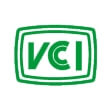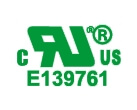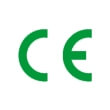Environmental Sustainability
Green Products
Green Procurement
Environmental sustainability serves as a vital foundation for long-term corporate resilience. PTI is firmly committed to maintaining a balance between technological innovation and ecological preservation. Through active implementation of green procurement practices, we ensure that materials used are free from hazardous substances. Moreover, we strive to prevent operational impacts on biodiversity and existing ecosystems. In collaboration with supply chain partners, we uphold biodiversity conservation guidelines, advancing toward the goal of generating a Net Positive Impact (NPI) on the environment.
Hazardous Substance Management
As part of our commitment to producing environmentally friendly products, PTI actively manages the use of hazardous substances across materials and manufacturing processes. In accordance with the EU RoHS Directive, international environmental standards, and customer-specific requirements, we have adopted a Hazardous Substance Free (HSF) Management System aimed at reducing environmental impact and strengthening product competitiveness. The system's effectiveness and continual improvement are verified through recognized third-party certifications, including IECQ QC080000 and SONY Green Partner (GP). All materials conform to both internal policies and applicable environmental directives, ensuring full compliance with global regulations and client expectations.
Hazardous Substances Free (HSF) Quality Policy

■ Response to International Hazardous Substance Compliance
Green Product Management
Since entering the design and production of Solid-State Drives (SSDs) in 2014, PTI has adhered strictly to both domestic and international safety regulations to ensure product quality and compliance. We have completed safety assessments and achieved 100% implementation of standard safety markings, including UL Mark, C-Tick (Australia), WEEE, and BSMI (Taiwan), across all product nameplates. These measures ensure that our products meet the highest safety and quality standards, while also minimizing potential risks to human health, safety, and the environment.

VCCI

UL Certified

China RoHS

WEEE

EU

KCC

BSMI

Australia C-Tick
End of Life Cycle Management - E-waste Management
With the widespread adoption of technological products, electronic waste (e-waste) generated during the manufacturing process has been steadily increasing. These wastes may contain hazardous substances which, if not properly handled, can seep into soil and water sources, posing potential threats to ecosystems and human health. However, e-waste also contains valuable recyclable metals such as gold, silver, and copper. Effective recycling and reuse of these materials not only reduce resource waste but also promote the development of a circular economy.
In addition to continuously advancing its manufacturing technologies, PTI is actively committed to fulfilling its ESG sustainability responsibilities. Regarding e-waste management, the company has established a dedicated unit and works closely with certified recycling partners to ensure the safe disposal and resource recovery of waste materials. This initiative not only demonstrates the company’s commitment to environmental protection but also serves as a concrete action toward achieving the United Nations Sustainable Development Goal (SDG) 12: Responsible Consumption and Production, contributing to the creation of a sustainable future.
- Item
- Environmental Impact
- Ecological Impact
- Action Plan
- E-waste
- Pollutant emissions resulting from final waste disposal methods
- Ecological impacts caused by air emissions, wastewater discharge, and resource consumption resulting from waste treatment processes.
- Strengthen the waste management system and promote circular economy strategies to mitigate ecological risks.
E-waste Indicators and Sustainable Revenues
- Item
- Unit
- 2021
- 2022
- 2023
- 2024
- Total weight of WEEE collected from takeback programs
- Metric Tonnes
- 516.41
- 539.63
- 387.86
- 488.15
- Percentage of takeback WEEE reused / resold / recycled
- Percentage
- 100
- 100
- 100
- 100
- Percentage of takeback WEEE disposed / landfilled
- Percentage
- 0
- 0
- 0
- 0
- Sustainable revenues
- NT$
- 131,004,406
- 117,618,646
- 105,583,570
- 170,930,298
Status of Sustainable Metal Raw Materials
In 2024, all metallic materials used in PTI's manufacturing processes did not contain cobalt, lithium, or titanium.
- Metal Materials
- Metal Weight (Metric Tonnes)
- Metal Recycling Rate (%)
- Cobalt
- 0
- 0
- Lithium
- 0
- 0
- Titanium
- 0
- 0